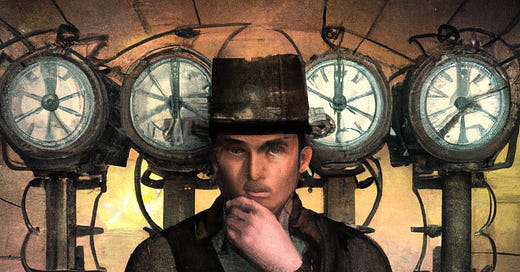Silicon Valley: Perhaps the major way in which what is going on today and likely to happen in our future differs from the predictions evolve past Silicon Valley "futurists" is this: We, individually, and collectively, have proven much more incompetent at building systems, to allow us to control where we focus our attention than anyone had imagined:
David Karpf: ‘The book project is anchored in the back catalog of WIRED…. The magazine has been around… documenting, celebrating, and advocating for the digital revolution that has permanently been in a state of imminent arrival…. I’m trying to isolate what the impending digital future looked like back then, in the hopes of deriving some insights regarding how we got to now—how the society we currently inhabit diverged from the one the futurists displayed such confidence they were building…. I’ve come across four distinct genres of futurist rhetoric. Each has its own strengths, limitations, and boundaries. “The future” plays a different role in the hands of the pundit, the professional optimist/futurist, the Cassandra and the sci-fi author…. Punditry… crowd[s] out the substantive… with meaningless horserace commentary.… Futurism with a capital “F.” It moves at a slow, deliberate pace, and it is intently focused on divining what the future will be like…. But… [it] comes with factory-installed rose-tinted glasses that cannot be removed… a deep cultural legacy dating back to the 60s Bay area counterculture…. Cassandra-futurists… are “the only people predicting the future who hope to be wrong”… most convinced that people today have agency in shaping tomorrow…. [Charlie] Stross tells us to “always be wary of SF writers bearing ideas.” I think we should pay attention to those ideas, while keeping in mind what they are useful for… <davekarpf.substack.com/…t>


